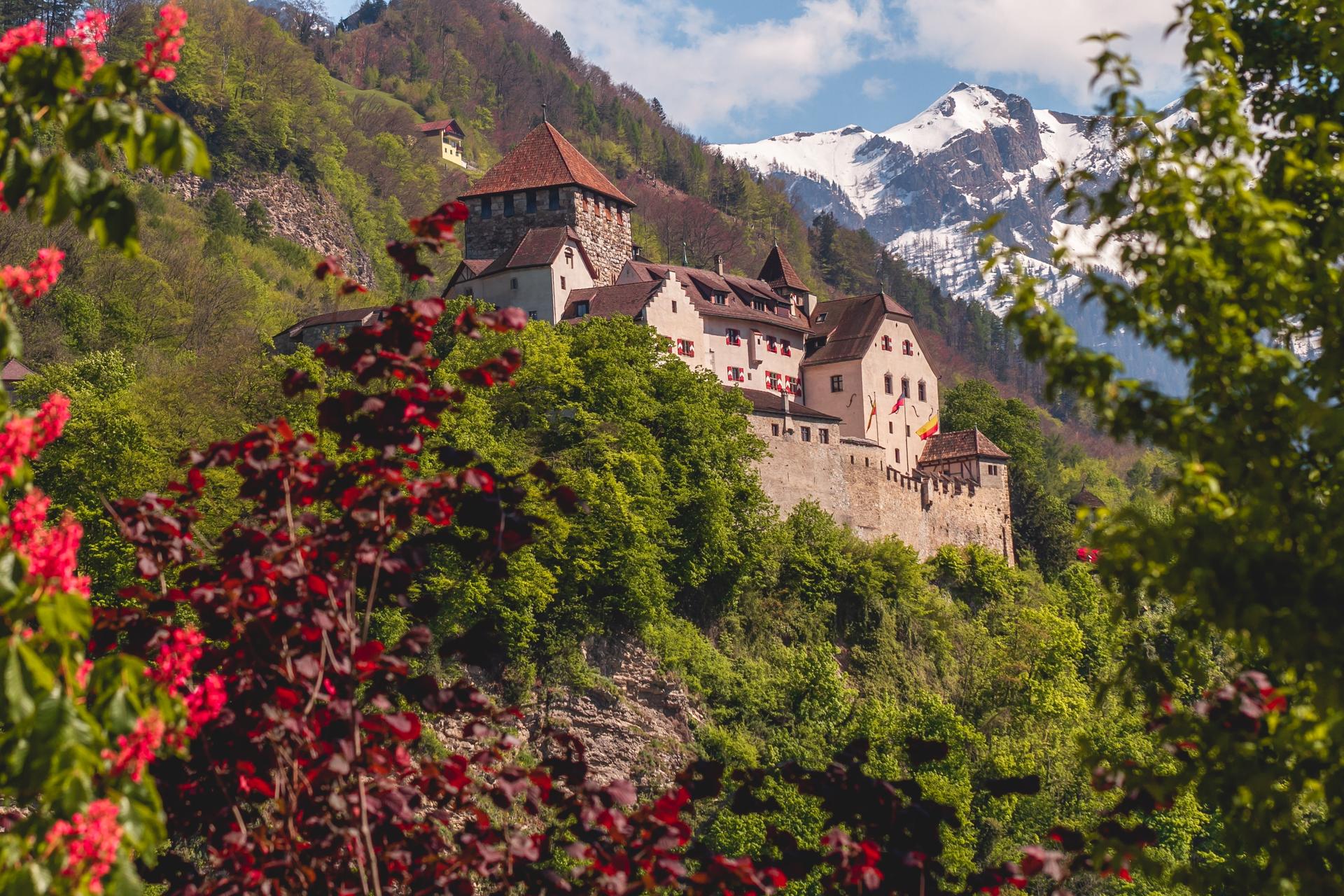Liechtenstein🇱🇮

Landlocked between Switzerland and Austria, Liechtenstein is a small European microstate mantling the Alps and known for its picturesque landscapes. It is one of the smallest but the richest (in terms of GDP per capita) countries globally. Despite its size, the country excels in maintaining congenial foreign relations. It boasts of a rich history resonating in its beautifully preserved medieval castles, museums and structures such as Vaduz Castle, Gutenberg Castle and the Classicist residential palace in Vaduz. The country is popular for winter sports, hiking trails, and wine tasting. When here, visitors should not miss the Kunstmuseum Liechtenstein, the Liechtenstein National Museum, and the engaging Malbun's ski resort.
⚠️Things you should avoid⚠️
- Avoid wearing shoes while indoors – people in Liechtenstein often prefer guests to take off their shoes.
- Avoid jaywalking as traffic laws are strictly enforced.
- Avoid visit during off-peak tourist periods, because many though not all restaurants and hotels close.
- Avoid leaving valuables unattended, even though crime rates are low.
- Avoid ignoring winter weather warnings as avalanches and landslides can occur.
- One should avoid discussing private matters since people in Liechtenstein value their privacy.
- Avoid late night vocational activities to a certain extent due to low public transportation frequency.
- Avoid ignoring environment protection laws; penalties for littering are high.
- Avoid not carrying your ID, as you may be asked to present it.
- Avoid public display of affection if you are a member of the LGBTQ+ community as the society still leans towards conservatism.
Overall
9
Crime 🔫
9
Crime rate in Liechtenstein is very low due to the country's high standard of living, well-developed social systems, small size, and efficient police force. Incidents of violent crimes like assaults or robberies are exceedingly rare. Petty crimes such as pickpocketing or minor theft might occur in crowded areas. All cities in Liechtenstein are safe.
Terrorism 💣
10
Liechtenstein has had no historic record or threats of terrorism. The country's political stability, small size, and neutral foreign policy help ensure that the country remains safe from such threats.
War ⚔️
10
Liechtenstein has maintained neutrality for over a century. The country hasn't participated in any warfare since the late 1860s and thus, records a high safety rating in terms of war-related risk.
Natural Disasters 🌊
8
Perched in the Alps, Liechtenstein is prone to weather-related incidents like avalanches and landslides. The country has efficient early-warning systems in place to manage these risks. No major natural disasters have occurred in recent history.
Medical Care 🏥
10
Liechtenstein boasts one of Europe's best healthcare systems. It has modern medical facilities, well-trained medical professionals, and efficient emergency services. However, as the country is small, certain specialized treatments might require transfer to bigger hospitals in nearby Switzerland or Austria.
Tap Water Quality 💧
10
Tap water in Liechtenstein is of high quality, it's clean and safe to drink throughout the country.
Disease Burden 🤒
10
With its superior healthcare system and high standard of living, Liechtenstein has a low disease burden. Immunization rates are high and common diseases are well-controlled.
Corruption 💸
9
Transparent governance and robust law enforcement result in minimal corruption in Liechtenstein. It is one of the least-corrupt countries in the world, although low-level corruption might occasionally occur.
Safety for Women ♀️
9
Liechtenstein is a secure place for women. There's a very low risk of assaults or gender-based crimes. Safety measures are well-implemented and the country promotes gender equality.
Safety for Queer People 👬
9
Liechtenstein maintains a good level of safety for queer individuals. The rights of the LGBTQ+ community are recognized and penal actions are in place against discrimination. The country legalized same-sex partnership in 2011.
Censorship 📺
10
With high regard for freedom of speech and press, Liechtenstein experiences virtually no governmental censorship. The media in Liechtenstein operates freely and journalists here work without significant restrictions.
Public Transportation 🚌
9
The public transportation system in Liechtenstein is efficient, reliable, and safe. It consists mainly of buses, which connect all major areas of the country. There have been no notable incidents or accidents with public transport.
Other useful information
🔒 How safe is it?
Liechtenstein is one of the safest countries in the world. With very low crime rates, no threat of war or terrorism, excellent healthcare and transportation, it scores high. Meticulous attention is advised while adventurous sports like skiing or hiking due to the occasional risk of avalanches.
🏰 Embassies in this Country
Owing to the small area of the country, there are only two embassies in Liechtenstein – Swiss and Austrian embassies located in Vaduz.
💉 Recommended Vaccinations
Standard vaccinations like MMR(Measles, Mumps, Rubella), Chickenpox, are recommended. As well as vaccines for Tdap(Tetanus, Diphtheria, Pertussis), Influenza, and Hepatitis A.
🐍 Dangerous Animals
Liechtenstein harbors very few potentially dangerous animals. The biggest risk would probably be from ticks, which can carry Lyme disease or Tick-borne encephalitis (TBE). Protective clothing and repellents are advised.
🛂 Visa Requirements
Visitors from EU countries, the US, etc., don't require a visa for a visit up to 90 days. For others, a Schengen visa might be required.
💲 Currency
The official currency is the Swiss Franc (CHF). Currency can be exchanged at banks, airports, and certain hotels.
💳 Credit Card Acceptance
Credit cards are widely accepted in Liechtenstein in most hotels, restaurants and businesses.
Is it possible to work and travel?
While Liechtenstein is indeed a great place for travel, the possibilities for work for foreigners are limited due to strict labor laws and a highly specialized economy.
💵 Cost of Travel and Living
Liechtenstein is considerably expensive, being one of the richest countries. Accommodation, food, and transportation can be costly, yet it provides high value for each franc spent.